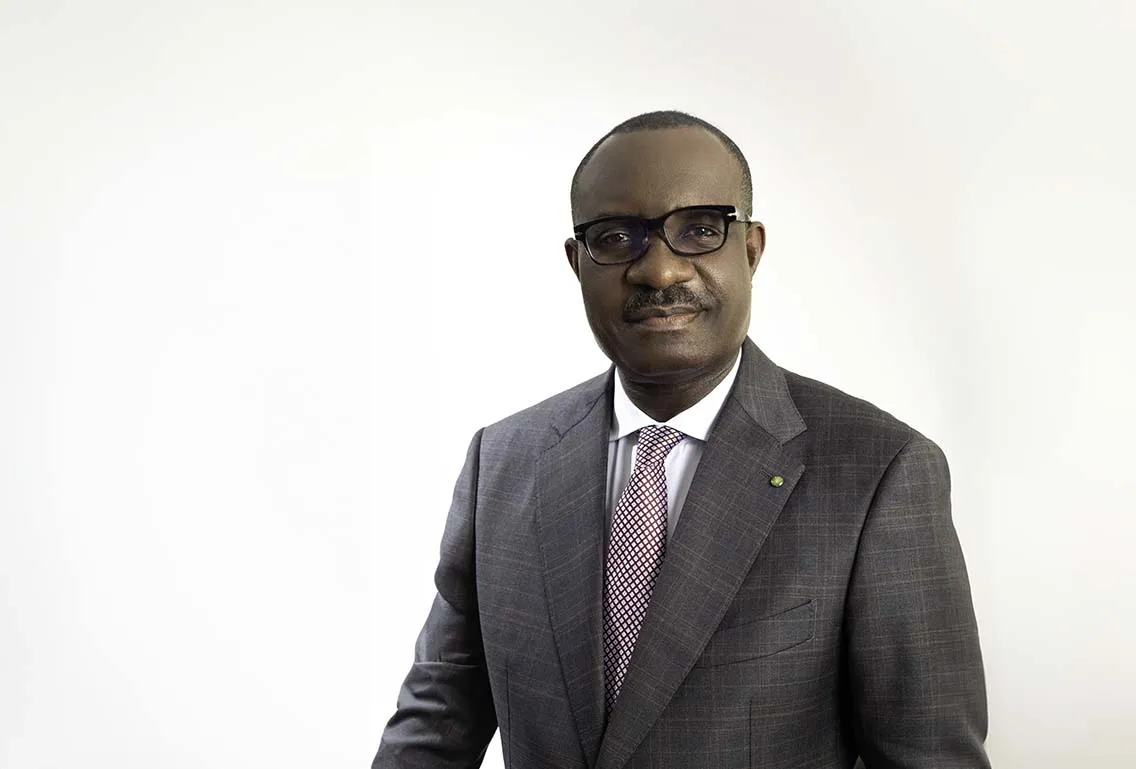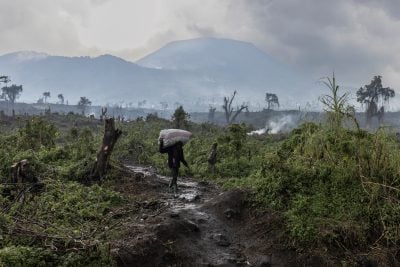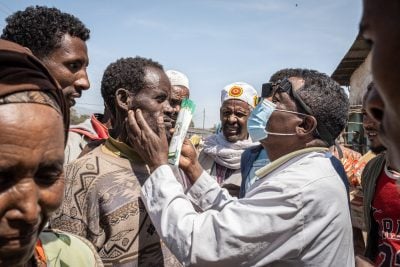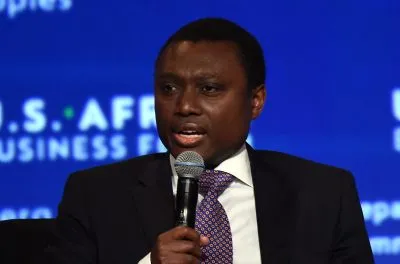This article was produced with the support of ECOWAS Bank for Investment and Development
Could you provide insights into the recent developments regarding non-regional participation in EBID’s capital?
West Africa has a population of 402m and thus constitutes a very large market with enormous opportunities. Investing in EBID’s capital would allow not only solid partnership in the ECOWAS region, but also collaboration with the 15 member states.
Since EBID’s Board of Governors approved the entry of non-regional members into the Bank’s capital, several meetings with major partners have been held and a great deal of progress made. We are continuing along this path and believing that very soon our efforts will bear fruit. The overarching aims of this move are:
Increased capital base: non-regional members can provide additional capital, allowing the Institution to expand its lending capacity and operations.
Broader perspective: Bringing non-regional members onboard can provide a more global perspective and help avoid an overly narrow regional focus.
Enhanced credibility: Having non-regional members, particularly from developed countries, can enhance the Institution’s credibility in international financial markets.
Knowledge sharing: Non-regional members can facilitate knowledge sharing and best practices from other regions or global institutions.
Diversification of funding sources: Bringing non-regional members onboard, will help diversify the Institution’s funding sources, potentially improving its financial stability.
Improved governance: Non-regional members may contribute to improved governance practices and transparency.
Improved credit rating: Bringing investment grade non-regional members onboard improves the shareholder support variable in the credit ratings agencies’ methodology. This can serve as a lever to improve the Institution’s credit ratings.
Could you elaborate on the newly approved projects for the region discussed at the recent board meeting?
The 88th Board of Directors’ meeting of EBID approved a total of 117.4bn West African CFA francs (XOF) and $62.7m for four public sector projects in the areas of commerce, infrastructure, and rural development.
Two public sector projects were approved in Côte d’Ivoire, totalling XOF 117.4bn. The first, worth XOF 60.9bn, is for the construction of 22 reinforced concrete bridges to enhance rural road connectivity for ten districts across eight of the country’s most under-served regions. The second provides XOF 56.5bn to support the building of ultra-modern livestock abattoir facilities and a veterinary public health institute, within the framework of the National Policy for the Development of Livestock, Fisheries and Aquaculture, which aims to improve food security in Côte d’Ivoire while expanding the livestock production sector to boost economic growth.
A third project was approved in Côte d’Ivoire: a credit line of €20m to enable Mansa Bank to support small and medium enterprises and industries (SMEs and SMIs) with the expansion of their operations within their role as the backbone of the economy.
The Board also approved $62.7m for two water infrastructure projects in the Republic of Guinea. $28.4m will go to drinking water supply systems for 205,204 people in the towns of Beyla, Fria and Koubia by 2035. Second, $34.3m will help drill 150 boreholes equipped with hand pumps to deliver 100 drinking water supply points in Upper Guinea and Forest Guinea.
EBID has committed around $4.2bn to initiatives in West Africa. Can you share examples of how these investments have improved the lives of communities?
Specific examples of how EBID’s investments have tangibly improved the lives of communities in the region include:
Infrastructure Development: EBID has focused on financing infrastructure projects, particularly in transportation, energy, and telecommunications. These investments help improve connectivity, facilitate trade, and enhance the overall quality of life for West African citizens.
Agriculture and Food Security: The Bank has provided financing for agricultural projects, including irrigation systems, rural water supply, and support for farmers. This contributes to improved food security and rural development in the region.
Social Sector Support:EBID has invested in education, health, and vocational training projects. These investments directly impact human capital development and improve access to essential services for communities.
Private Sector Development: Through its private sector window, EBID supports SMEs and SMIs and promotes industrialisation. This contributes to job creation and economic diversification in member countries.
Financial intermediation:EBID has promoted financial intermediation in the sub-region by providing facilities to financial institutions for on-lending to businesses in the sub-region.
Regional Integration: By financing cross-border infrastructure projects and promoting intra-regional trade, EBID’s investments contribute to the broader goal of regional integration within ECOWAS.
The long-term goals for these investments align with EBID’s vision and mission:
Economic Growth and Industrialisation: EBID aims to foster an economically strong and industrialised West Africa.
Poverty Alleviation: The Bank seeks to be an effective instrument for poverty alleviation, wealth creation, and job promotion in the region.
Regional Integration: EBID’s investments are geared towards promoting a more integrated West African economy, both internally and within the global economic system.
Sustainable Development: The Bank focuses on financing projects that contribute to the sustainable development of member states.
Resilience Building: As evidenced by the 2024 West African Development Outlook report, EBID is working towards building resilience to recurrent shocks in the region.
Private Sector Promotion: EBID aims to be a powerful financial institution for private sector promotion and financing in the region.
Could you provide an update on the progress made so far on EBID’s 2021-2025 Strategy?
By its mid-term in June 2023, two thirds of the Strategic Plan’s objectives had been fully implemented. The Bank’s total balance sheet and loan approvals exceeded their targets, with significant achievements in resource mobilisation. Cumulative approvals for projects reached 1,008.65m units of aid (UA), achieving 82.35% of the target.
The Bank’s total balance sheet reached UA 1,252.58m, exceeding targets for 2023 and 2025. Loans and advances also surpassed their targets, with capital mobilisation at 132.32% of the mid-term target.
The total financing requirement is estimated at UA 1,028.92m, with 66.21% of the 2025 target mobilised by mid-term. The Bank increased its capital from UA 1bn to UA 2.5bn.
At mid-term, the Bank financed 45 loan projects totalling UA 1,029.39m, achieving 195.91% of the target for the first three years. The strategy aligns with 11 of the 17 Sustainable Development Goals (SDGs).
As at the end of 2023, the Bank’s loan book was at 115.6% of the 5-year target, with the balance sheet at 134.9% of target. Resource mobilisation was at 81.4%, while disbursements were at 90.2% of the target for the life of the Strategic Plan.
What are your primary objectives for the next few years?
EBID’s primary objectives, particularly in the context of regional development and integration, can be outlined thus:
Infrastructure Development: EBID will continue to prioritise investments in critical infrastructure projects across the region. This includes transportation networks, energy systems, and telecommunications infrastructure that are essential for regional connectivity and economic growth.
Sustainable Development: The Bank aims to align its investments with the UN Sustainable Development Goals (SDGs), particularly focusing on SDG 2 (Zero Hunger), SDG 6 (Clean Water and Sanitation), and SDG 9 (Industry, Innovation, and Infrastructure).
Private Sector Development: EBID will continue to support SMEs through credit lines and other financial instruments.
Regional Integration: As a key financial institution of ECOWAS, EBID will play a crucial role in promoting regional integration through cross-border projects and initiatives that facilitate intra-regional trade and cooperation.
Innovative Financing: To meet the growing financing needs of the region, EBID will likely explore and implement innovative financing mechanisms, including blended finance, green bonds, and public-private partnerships.


 Sign in with Google
Sign in with Google 





